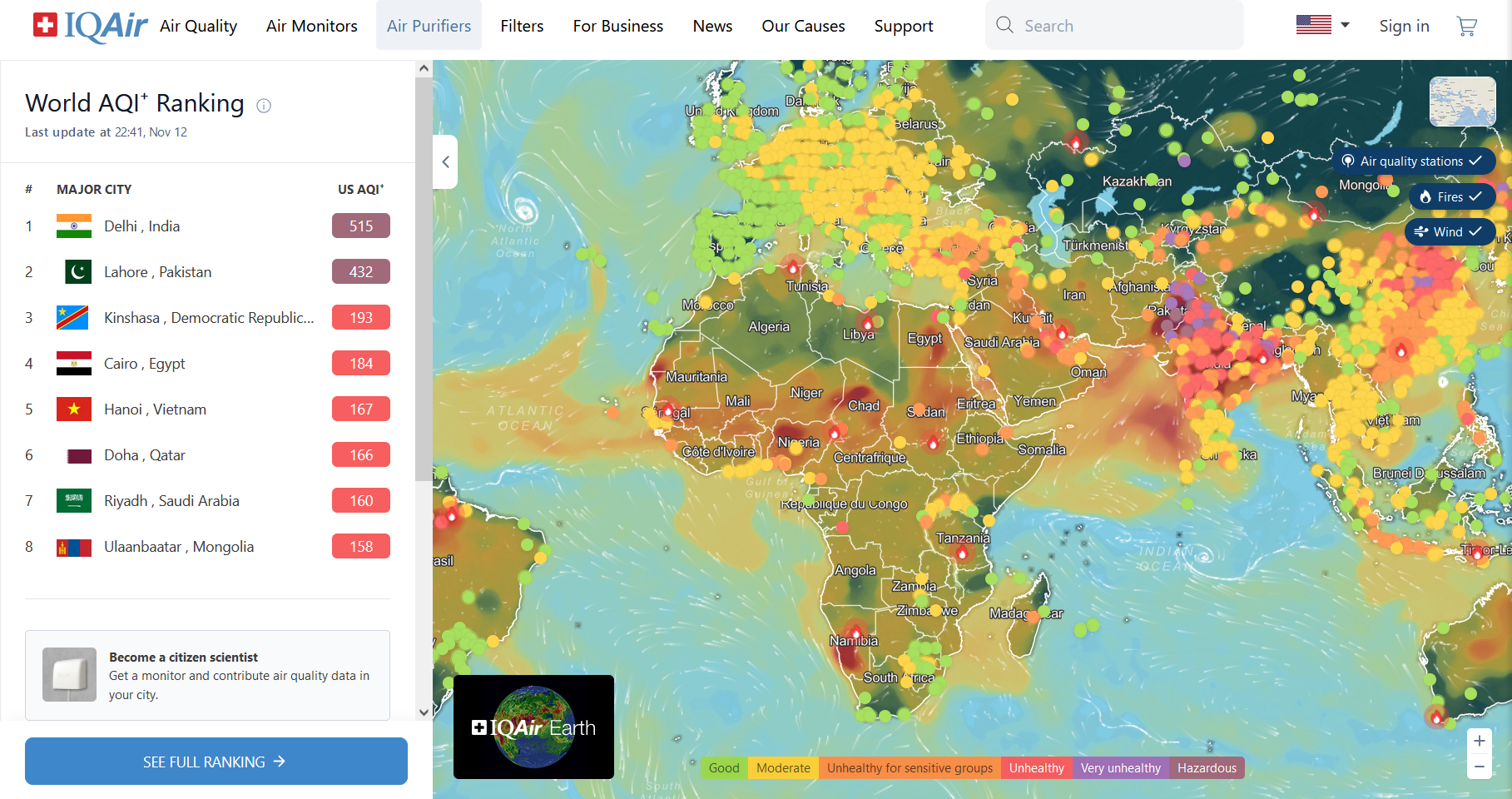

BW Online Bureau Nov 11, 2024
With rising air pollution, safeguarding health has become a necessity, especially as exposure to poor air quality can lead to a range of serious conditions, including respiratory and cardiovascular diseases.
With rising air pollution, safeguarding health has become a necessity, especially as exposure to poor air quality can lead to a range of serious conditions, including respiratory and cardiovascular diseases.
Dr. Ankit Bansal, Consultant in Internal Medicine & Infectious Diseases at Sri Balaji Action Medical Institute in Delhi recommends that individuals begin by closely monitoring the Air Quality Index (AQI) in their area to determine when it is safest to go outdoors. "Regularly checking AQI levels is crucial, especially during periods of high pollution. This way, people can plan outdoor activities for times when the air quality is better and avoid unnecessary exposure," he explains. For those who must go outside when pollution levels are high, wearing an N95 mask is essential. "N95 masks help filter out harmful particles, offering some protection to those needing to be outdoors," he adds.
For individuals with pre-existing respiratory conditions like asthma or chronic obstructive pulmonary disease (COPD), extra caution is needed. "Doubling the dosage of inhalers during times of high AQI can provide added respiratory protection," Dr. Bansal advises. Additionally, maintaining good indoor air quality is crucial. Using air purifiers at home, particularly in spaces where one spends the most time, can help reduce indoor pollutant levels. Staying hydrated is also recommended to assist the body in flushing out any toxins absorbed from polluted air.
Dr. Vivek Nangia, Vice Chairman and Head of Pulmonology at Max Super Speciality Hospital, Saket emphasizes that individuals, particularly those in high-risk categories such as the elderly and those with compromised immune systems, should minimize outdoor activities when the AQI is dangerously high. "It’s best to stay indoors, and when outside movement is necessary, one should only engage in essential activities," he suggests. Physical activities like exercise should be avoided outdoors when pollution levels are elevated, as this increases the inhalation of harmful pollutants. Morning walks are also discouraged during high pollution periods; instead, Dr. Nangia recommends waiting until it’s bright and sunny, as pollution levels may decrease later in the day.
Wearing protective masks, specifically N95 or N99 masks, is also essential for outdoor activities. "While these masks are not entirely effective against toxic gases, they can filter out 95% to 99% of fine particles like PM 2.5," says Dr. Nangia. "This is crucial protection, as some protection is better than none." For individuals with asthma or COPD, consulting a healthcare provider for an appropriate emergency drug plan is advised.
Both doctors highlight that maintaining a clean environment is an important preventive measure. Dr. Nangia urges people to limit idling car engines and avoid open-air burning, as these contribute significantly to both indoor and outdoor pollution. He suggests opting for public transportation, particularly underground metros, carpooling, and limiting pesticide use in lawns and gardens, as well as supporting laws that aim to improve air quality.
Avoiding fossil fuel burning and keeping indoor spaces clean are equally essential. Dr. Nangia explains that incorporating air-purifying plants like palm, ficus, aloe vera, ivy, and spider plants in homes and offices can improve air quality. He also recommends ensuring that homes are equipped with chimneys in kitchens and exhausts in bathrooms to expel harmful air pollutants.
Nutrition also plays a role in combating the adverse effects of pollution. Consuming foods rich in vitamins C and magnesium, as well as those high in omega fatty acids, can help the body defend itself against harmful pollutants. "A diet with these nutrients supports the immune system, which is essential in fighting the harmful effects of pollution," says Dr. Bansal.
Managing and mitigating the effects of poor air quality requires a combination of awareness, environmental management, and personal protective measures. Expert insights highlight that taking these proactive steps, especially during times of high pollution, can significantly protect vulnerable populations and reduce the health risks associated with degrading air quality.

Comments